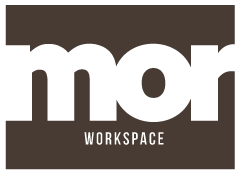Remote work has changed the way we think about office space. Businesses no longer want long-term leases and rigid contracts—they want flexibility, affordability, and a space that grows with them. That’s why flexible office spaces are becoming the go-to solution for start-ups, freelancers, and even established companies.
What Is Flexible Office Space?
Flexible office space refers to work environments that adapt to the needs of a business. Unlike traditional office leases, these spaces are designed to be scalable—allowing companies to rent only what they need, when they need it. This could be a single desk for a freelancer, a small suite for a growing start-up, or even a managed floor for a large enterprise.
The appeal lies in freedom. Businesses no longer have to commit to a 5- or 10-year lease. Instead, they can scale up or down as their team evolves.
Why Businesses Are Embracing Flexibility
-
Cost Efficiency
Office leases are one of the biggest overhead costs for companies. Flexible spaces cut down on expenses by removing maintenance, utilities, and long-term commitments from the equation. -
Scalability
Start-ups can grow quickly—or pivot suddenly. Flexible office space allows them to adjust their footprint without penalty. -
Hybrid Work Support
With remote and hybrid models here to stay, businesses don’t need full-time desks for every employee. Shared spaces let teams meet in person without paying for unused square footage. -
Professional Image
Even freelancers and small businesses can benefit from having an official office address, meeting rooms, and coworking amenities—without the financial strain of leasing a private office.
The Impact on Freelancers and Start-ups
For freelancers, flexible office space offers more than just a desk. It provides networking opportunities, access to professional amenities, and a clear boundary between work and home.
Start-ups benefit by projecting professionalism when meeting clients, while also staying lean with their expenses. A flexible lease means they can experiment, grow, and adapt without being tied down.
Why Enterprises Are Joining the Shift
It’s not just small businesses making the move. Large corporations are also rethinking their office strategies. Many are downsizing their permanent headquarters and adopting a hub-and-spoke model, where flexible spaces act as satellite offices for teams in different cities.
This allows companies to reduce overhead while still providing employees with a collaborative, well-equipped environment.
Looking Ahead: The Future of Work
As the workforce becomes more distributed, the demand for flexible office space will continue to rise. Companies want agility. Employees want convenience. And both are seeking spaces that inspire productivity without unnecessary costs.
The traditional office isn’t disappearing—but it’s evolving. Flexible workspaces represent a middle ground: structured enough for collaboration, yet flexible enough to adapt to modern business needs.
Final Thoughts
Flexible office space isn’t just a trend—it’s a strategic move for businesses of all sizes. From freelancers to global enterprises, the ability to scale, save, and stay agile makes it clear: flexible office space is the future of work.
👉 External Resource: CBRE Future of Office Report – for insights into how global companies are adapting their office strategies.
👉Sign up for free and book a flexible space today: https://mor-workspace.coherent.work
Written by Kelly Mather – Business hub co-ordinator at Mor workspace


